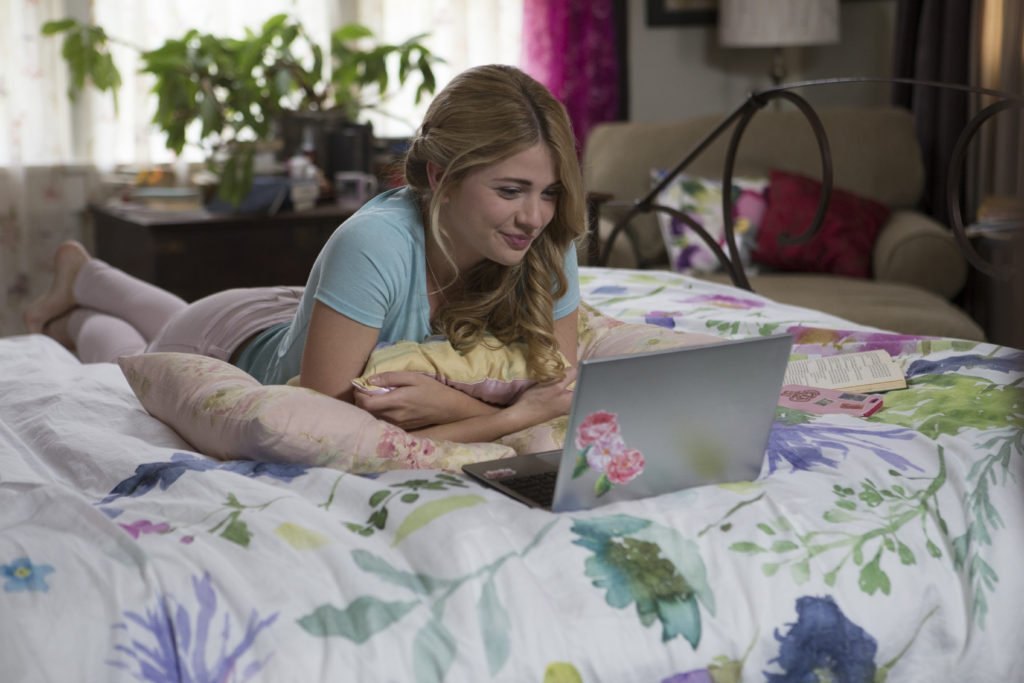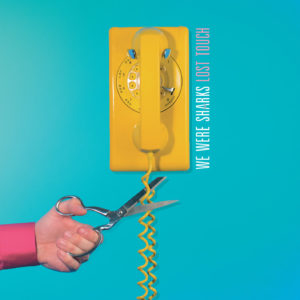 Like certain shark breeds and their inability to remain still even while sleeping, Canadian pop/punk rockers We Were Sharks are constantly swimming, touring relentlessly in support of their infectious music. Their latest album, “Lost Touch,” was released earlier this year on Victory Records to both critical and fan praise.
Like certain shark breeds and their inability to remain still even while sleeping, Canadian pop/punk rockers We Were Sharks are constantly swimming, touring relentlessly in support of their infectious music. Their latest album, “Lost Touch,” was released earlier this year on Victory Records to both critical and fan praise.
We recently sat down with guitarist Jason Mooney to discuss the comfort of life on the road, how “Lost Touch” is directly influencing what they write next, and why they always try to make themselves as accessible to fans as possible.
TrunkSpace: Some bands hit the road out of necessity, but we get the sense that you guys still love it as much today as you did when you first got together. Do you find you’re still experiencing “firsts” out there on the highways and byways as you tour? Does it still feel fresh?
Mooney: That’s a really great question! Touring is definitely a necessity, but we definitely still love it. We still have firsts! Even if that means stopping into a different WaWa/Sheetz for the first time. For me, personally, I actually love coming back to the towns and venues that we’ve played before. There is this strange feeling of comfort and appreciation for this lifestyle that I get when I can navigate my way around a place that is so far from home.
TrunkSpace: A lot of people use writing music as a form of personal therapy – a way to work out whatever demons they have. Does performing have therapeutic benefits as well? Can you get in front of a crowd and come off the stage a different person than as you went on?
Mooney: I find performing to be absolutely therapeutic. I hit the strings a little harder, shout into the crowd a little louder, but that just describes aggression. There’s also the moments while performing when I look across the stage and share a laugh with one of the guys in the band. I can definitely say that there have been times where it feels like a “bad day,” then I look forward to the show because chances are I’ll get it all out within 30 minutes and come off feeling a little lighter and in a better headspace.
TrunkSpace: Is there a song that you dig playing live that maybe you weren’t as happy with on the record? Can a tune have a different personality on the stage than it does in the studio?
Mooney: I love all of the songs but there definitely are songs that take on a different personality when played live. For me, one song in particular is “Never Looked Better.” It’s a track that I love listening to, but I 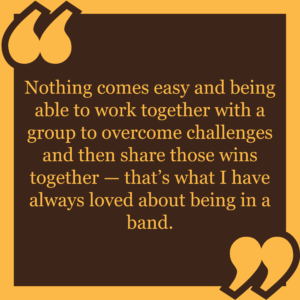 didn’t think it was going to make it into the live catalog. We began playing it live and it has had an awesome reaction. We’ve had show-goers tell us that it’s their favorite song, or they come up before the set and tell us that they hope we play it.
didn’t think it was going to make it into the live catalog. We began playing it live and it has had an awesome reaction. We’ve had show-goers tell us that it’s their favorite song, or they come up before the set and tell us that they hope we play it.
Instead of writing set lists, maybe we should just take requests live.
TrunkSpace: Your latest album, “Lost Touch” was released earlier this year, your first on Victory Records. Did having a label change give the experience, both in the studio and post release, that fresh car scent?
Mooney: It was definitely a different experience. What made it all the more different was having a team working on making sure that we have a successful release, as well as a team making sure the songs were the best they can be.
TrunkSpace: Do albums become a bit like chapters of your life? Does it become, “These were my ‘Lost Touch’ years and those were my ‘Not a Chance’ years”?
Mooney: I think that they show chapters of our experience of being songwriters. The experience we had writing and recording “Lost Touch” and seeing what works live has definitely influenced us in what we need to do next.
TrunkSpace: What do you get writing and performing within a band, and this band in particular, that you can’t access from a solo mindset? What are the benefits for you personally in having a group of people fighting the fight alongside of you?
Mooney: From a solo mindset, my voice sounds like nails on a chalkboard. So, solo for me is impossible. (Laughter)
But it’s the feeling of sharing your passion and drive with like-minded individuals. Nothing comes easy and being able to work together with a group to overcome challenges and then share those wins together — that’s what I have always loved about being in a band.
TrunkSpace: You guys have no doubt experienced a lot together over the years. After everything you’ve been through… and the point of view changes that come with age… do you see the band differently now than you did when it first came together? Does it serve a different purpose in 2018 than it did at the outset?
Mooney: I don’t think the point of view has ever changed. We accomplish goals and set new ones. Being in a band is a lot like pushing a boulder up a hill. When it comes down to the fundamentals, I think from the beginning it’s always been about writing music that we enjoy that can create a great live experience for those who come and see us.
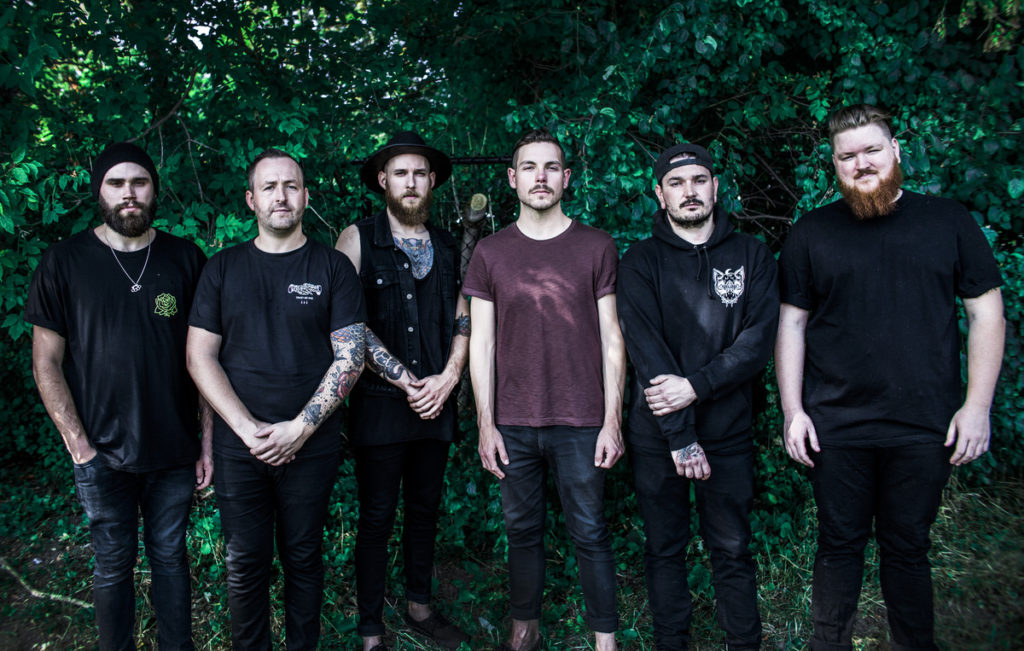
TrunkSpace: What has been the highlight of your musical career thus far – the moment that you will carry with you through the rest of your life?
Mooney: There are dozens of highlights and we are always creating amazing new memories. I think the release day of “Lost Touch” is something that my memory always returns to. We worked so unbelievably hard to create a full album that we are so proud of, and on that day, it was made available for everyone to hear.
TrunkSpace: What are your thoughts on the status of the music industry as a whole in 2018? Are you optimistic for the future in terms of the torch being carried by the next generation of kids coming up in the musical ranks?
Mooney: I do feel optimistic. Popular music genres, styles and musical tastes will always change. Technology will always evolve. Music is the one thing that will always bring people together and no matter where a person is, or the state of the world, music will continue to be made, and someone will always want to share it. I never think that a torch is passed down, or passed along. I think we all carry the torch together, and every year, there’s new determined artists who want to join in carrying that torch.
TrunkSpace: Fan feedback can often be the fuel that powers the creative brain because its evidence that the art is hitting its mark. What’s the most powerful fan feedback or interaction you have received that has made it all worth the journey?
Mooney: Someone at a show in Long Island, NY once told me how much they appreciated how we interact with everyone when we’re off stage.
As an artist, we try to meet and thank as many show-goers as possible. We do our best to take time and speak to as many people as we can at shows. When someone comes to the merch table, we focus on the experience. Even for the band member who grabs a beer at the bar, you may have an opportunity to talk to someone hanging out nearby. We’re all human, I believe we all try to be good people. Meeting someone and taking the time to talk to them can do wonders. You never know what life experiences a person has gone through or the steps they took prior to getting to your show. We always have the opportunity to be the shining light in somebody’s day.
“Lost Touch” is available now on Victory Records.





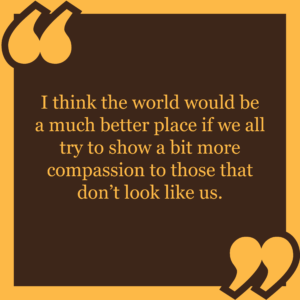 called in for the big scene where my whole crew dies, and I had a moment where I said to myself, “It’s happening. I’m here getting paid to be an actor. I can’t believe it.” I had done other TV roles, but it was a major recurring guest character and on an already established popular show. It was surreal.
called in for the big scene where my whole crew dies, and I had a moment where I said to myself, “It’s happening. I’m here getting paid to be an actor. I can’t believe it.” I had done other TV roles, but it was a major recurring guest character and on an already established popular show. It was surreal.
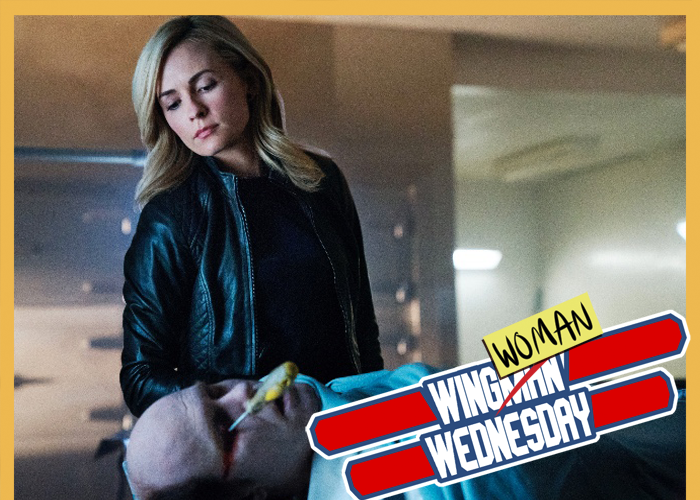
 Television can be a cruel place these days. While shows like “The Walking Dead” and “Game of Thrones” have prepared audiences for the “no one is safe!” approach to character consumption, we still can’t help but be disappointed when our favorite performers meet their fictional demise. That was very much the case when Lindsey Gort’s Amy Rohrbach took a surprise exit from “Titans,” leaving many fans of the DC Universe series to speculate if it was all just some twisting ruse.
Television can be a cruel place these days. While shows like “The Walking Dead” and “Game of Thrones” have prepared audiences for the “no one is safe!” approach to character consumption, we still can’t help but be disappointed when our favorite performers meet their fictional demise. That was very much the case when Lindsey Gort’s Amy Rohrbach took a surprise exit from “Titans,” leaving many fans of the DC Universe series to speculate if it was all just some twisting ruse.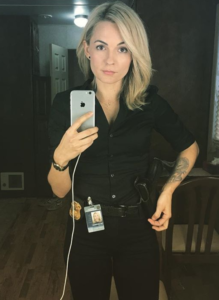
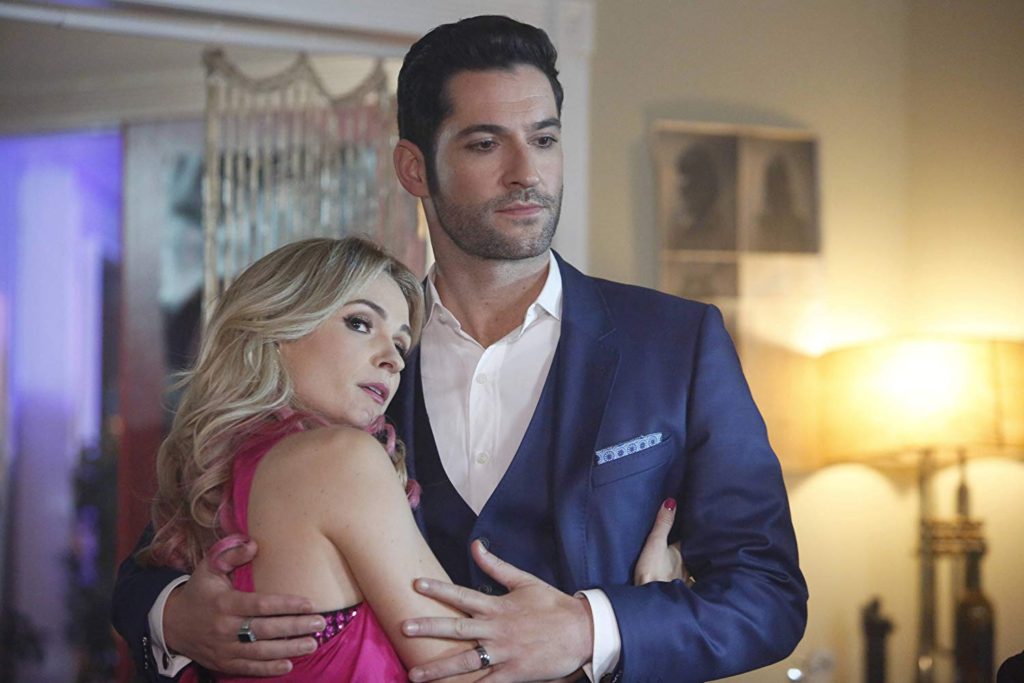
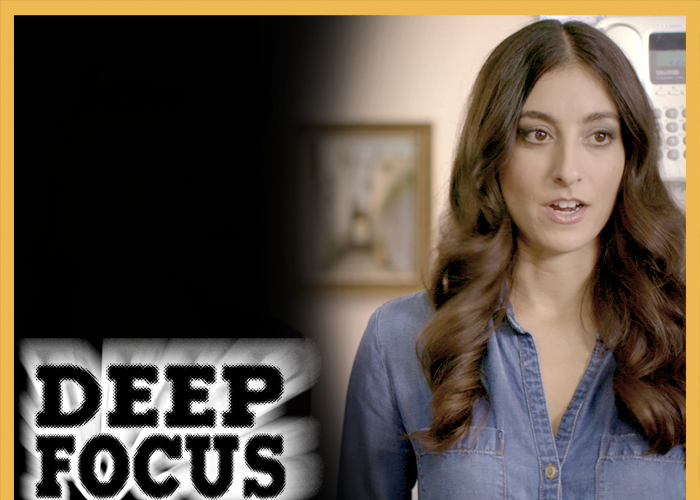

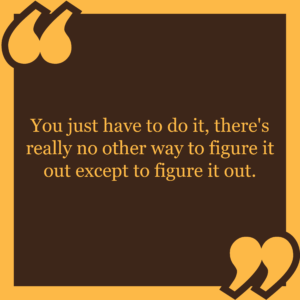 important for me to make this.
important for me to make this. 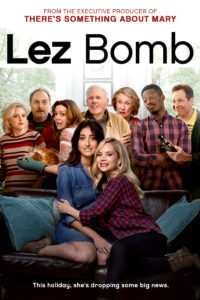 TrunkSpace
TrunkSpace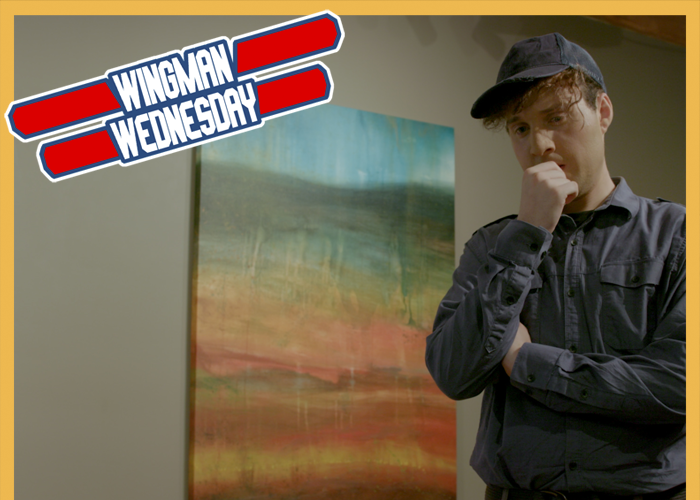
 This week we’re taking an extended look at the inspirational indie “Randy’s Canvas,” a moving tale about a young man with autism who is on a journey of love and self-acceptance. Starring Adam Carbone, Kevin G. Schmidt, Scout Taylor-Compton, Massi Furlan, Michael Emery, Richard Riehle and Marycarmen Lopez, the film is available now on digital HD.
This week we’re taking an extended look at the inspirational indie “Randy’s Canvas,” a moving tale about a young man with autism who is on a journey of love and self-acceptance. Starring Adam Carbone, Kevin G. Schmidt, Scout Taylor-Compton, Massi Furlan, Michael Emery, Richard Riehle and Marycarmen Lopez, the film is available now on digital HD.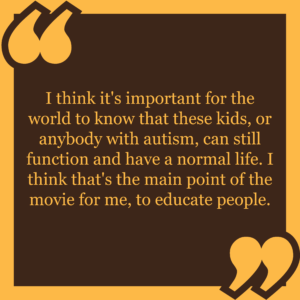 ife. I think that’s the main point of the movie for me, to educate people.
ife. I think that’s the main point of the movie for me, to educate people.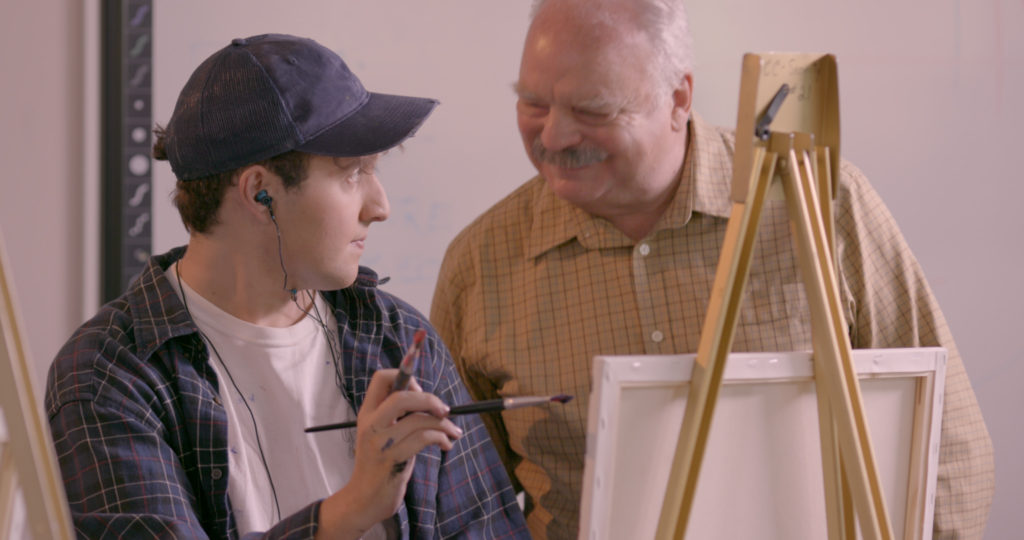
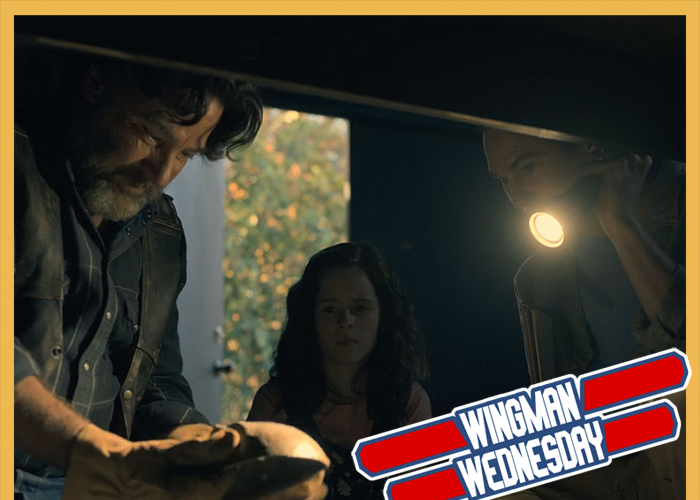
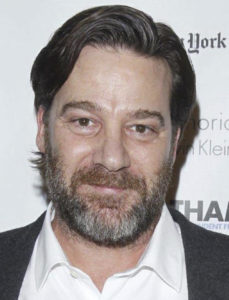
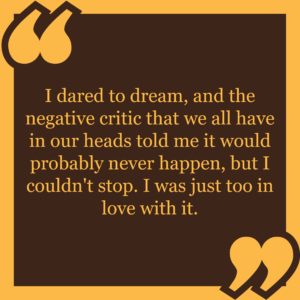 bad review or someone says something shitty about me, it crushes me.
bad review or someone says something shitty about me, it crushes me.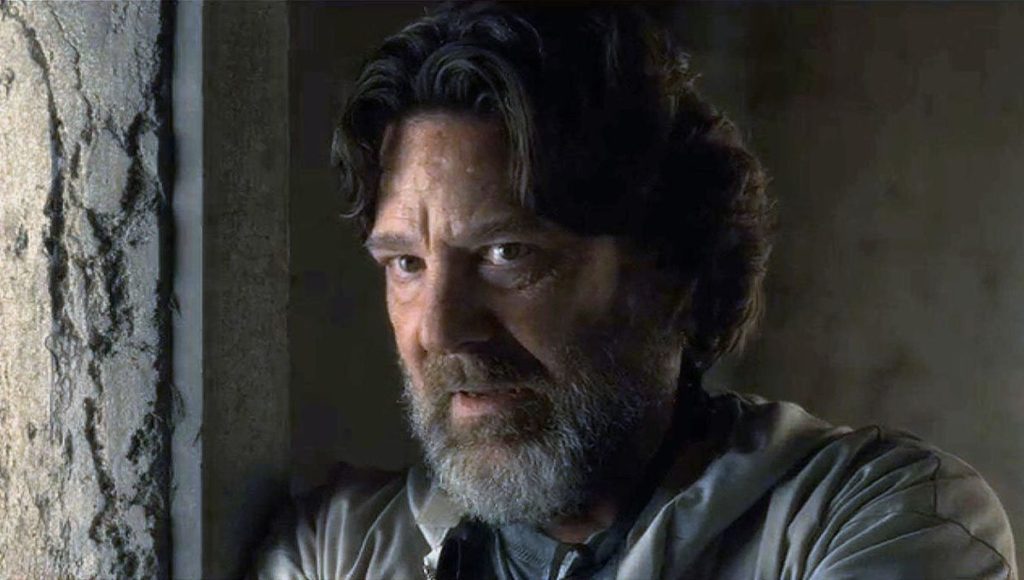
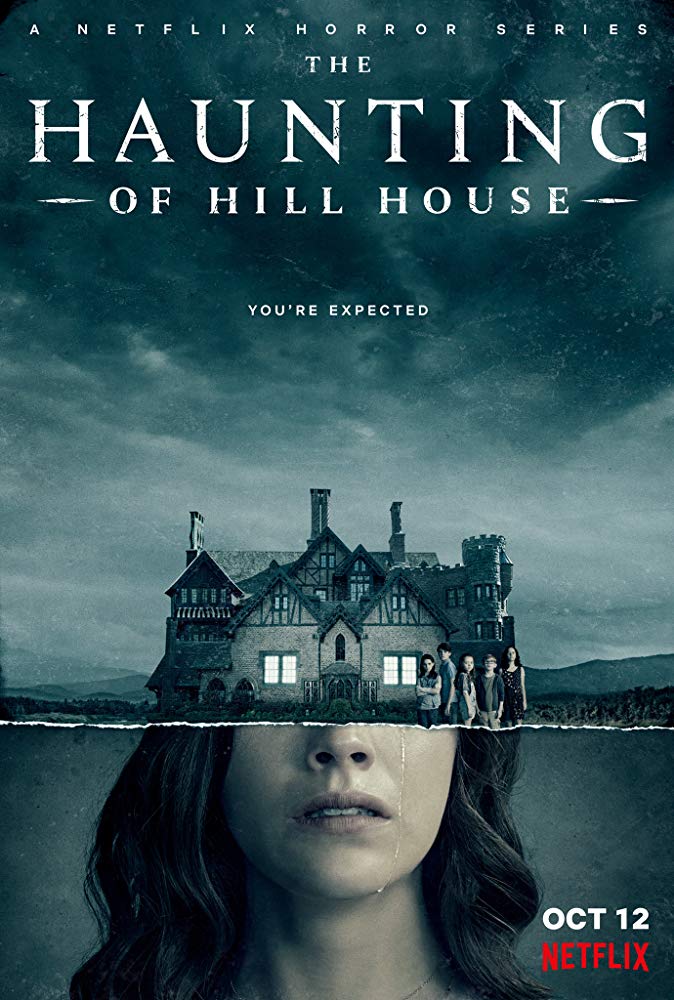 TrunkSpace: So was acting always the plan? Was there a plan B?
TrunkSpace: So was acting always the plan? Was there a plan B?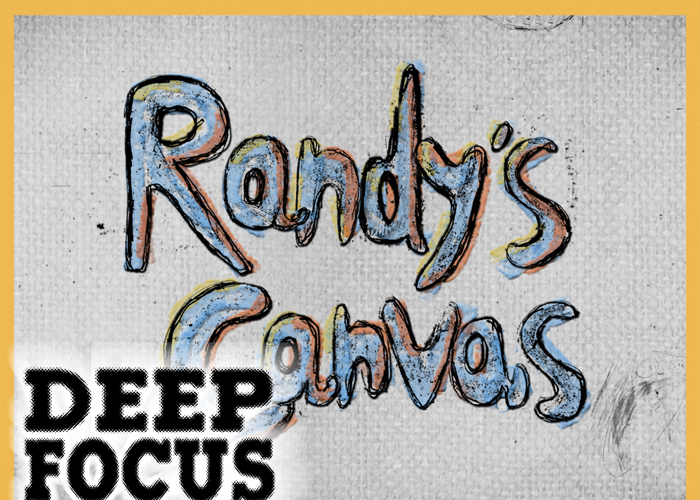
 This week we’re taking an extended look at the
This week we’re taking an extended look at the 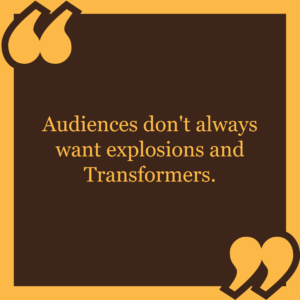 this justice and he obviously did, but I did have a lot of resistance and was told, “You’re making a mistake.” I just knew he was going to bring what it took. He did such hard work and research… I was very, very proud of all the time and effort that he put into it and it paid off.
this justice and he obviously did, but I did have a lot of resistance and was told, “You’re making a mistake.” I just knew he was going to bring what it took. He did such hard work and research… I was very, very proud of all the time and effort that he put into it and it paid off.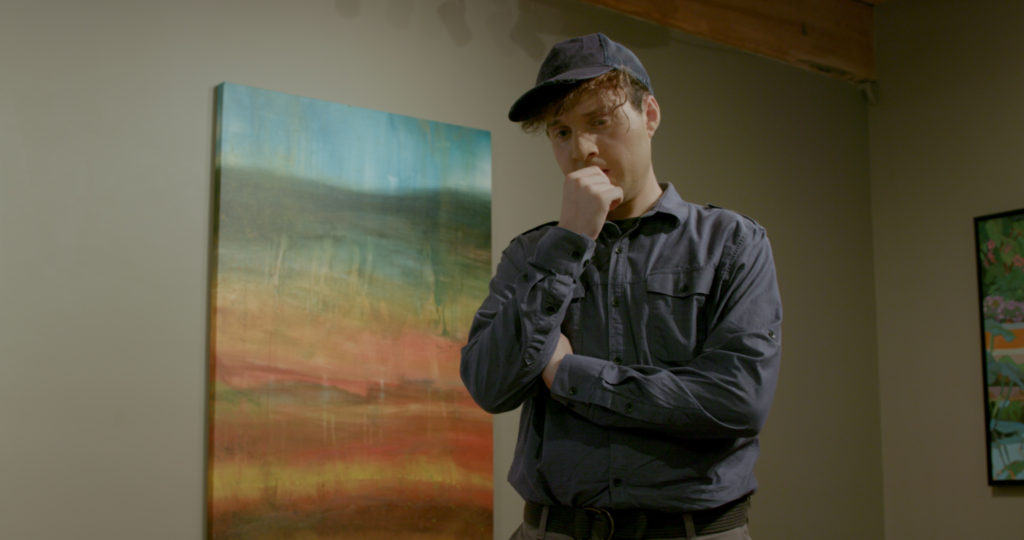
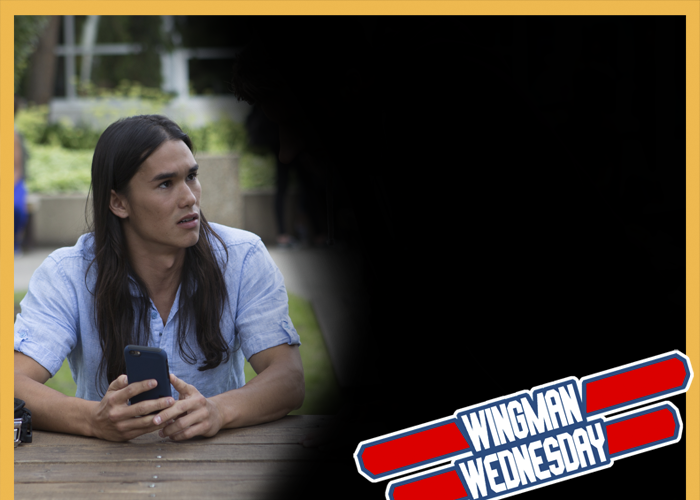
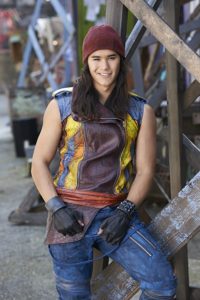
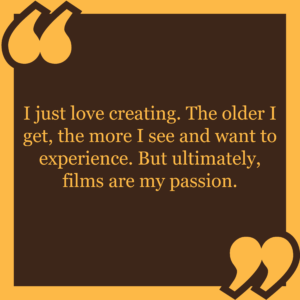
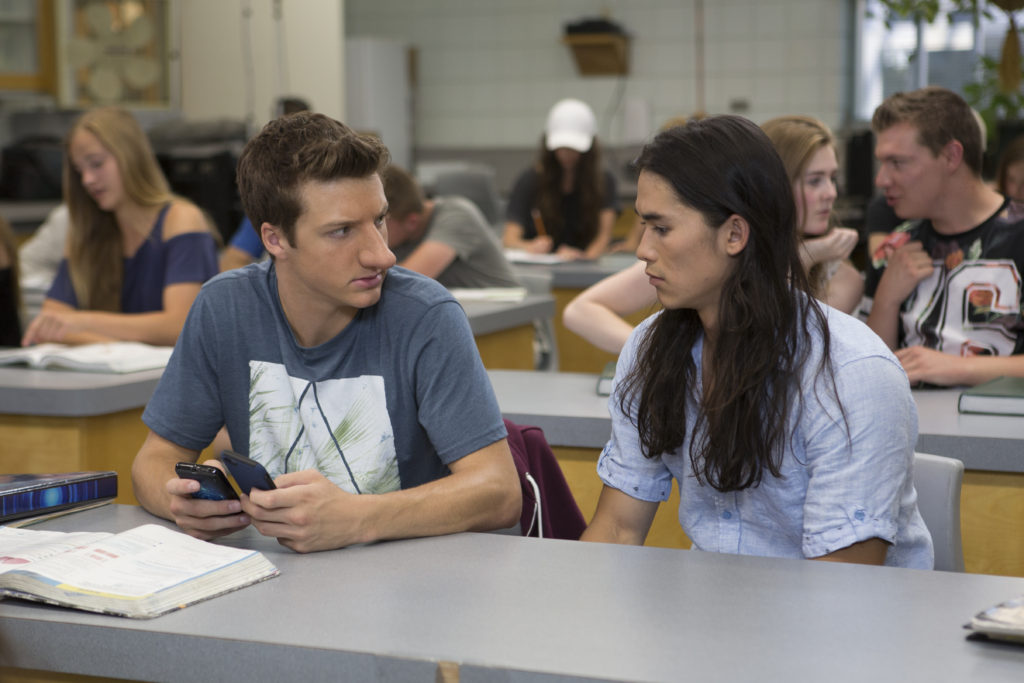

 Event: Tulsa Pop Culture Expo
Event: Tulsa Pop Culture Expo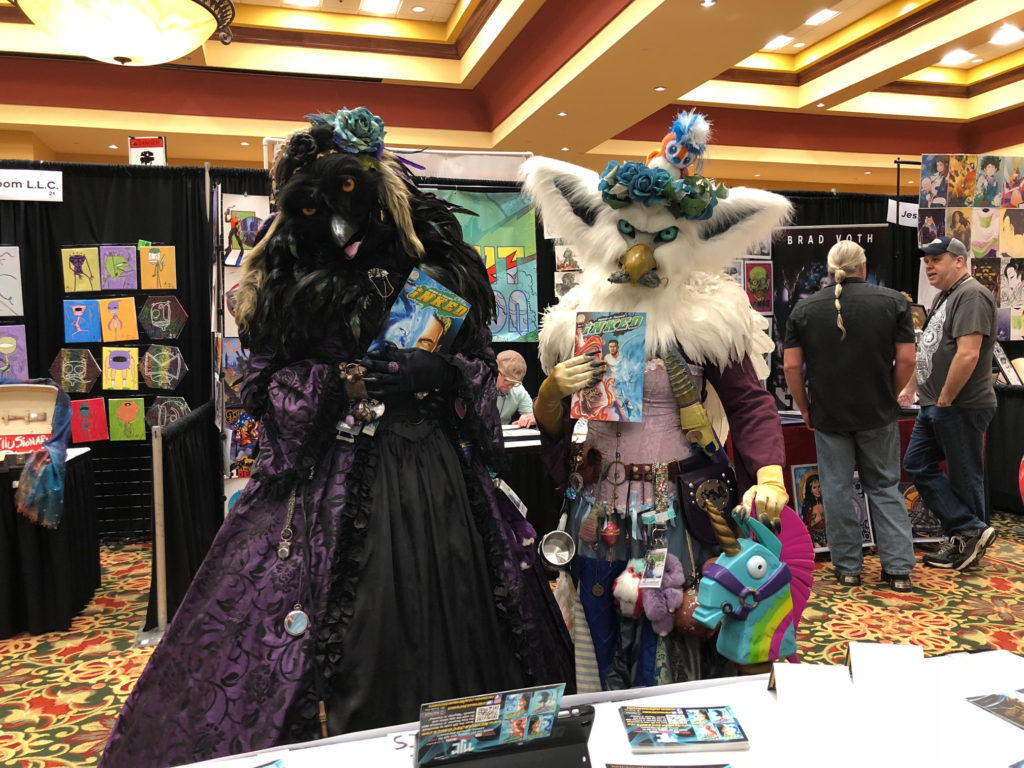

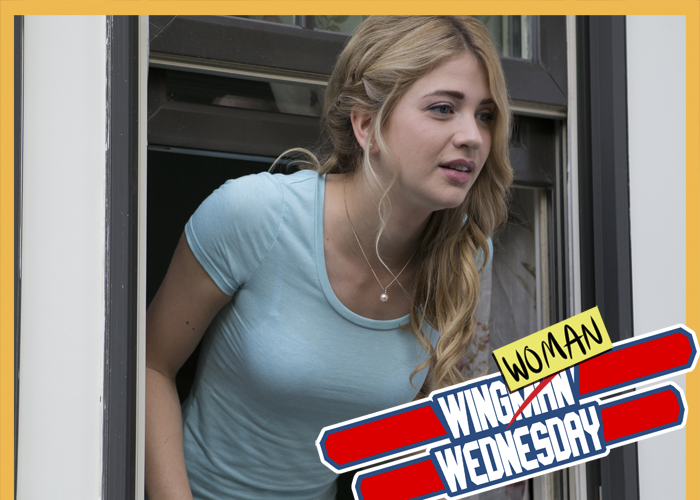
 This week we’re taking an extended look at the new movie, “#Roxy,” a modern romcom-reimagining of “Cyrano de Bergerac” starring
This week we’re taking an extended look at the new movie, “#Roxy,” a modern romcom-reimagining of “Cyrano de Bergerac” starring 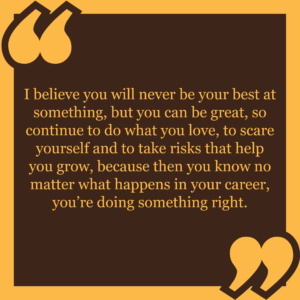 that it gives me an opportunity to talk with my followers and get to know them. I feel very lucky to have so much love and support and I never want to take that for granted! So, I like to be as active as I can be in that regard. There’s a part of me that finds it very fun in terms of creativity! There is also a part of me that sees how toxic it can be – I find myself obsessing over it sometimes or getting anxious if a picture doesn’t do well, but I think it’s important to remind yourself that the amount of comments, followers or likes you have does not determine your self-worth. YOU do!
that it gives me an opportunity to talk with my followers and get to know them. I feel very lucky to have so much love and support and I never want to take that for granted! So, I like to be as active as I can be in that regard. There’s a part of me that finds it very fun in terms of creativity! There is also a part of me that sees how toxic it can be – I find myself obsessing over it sometimes or getting anxious if a picture doesn’t do well, but I think it’s important to remind yourself that the amount of comments, followers or likes you have does not determine your self-worth. YOU do!